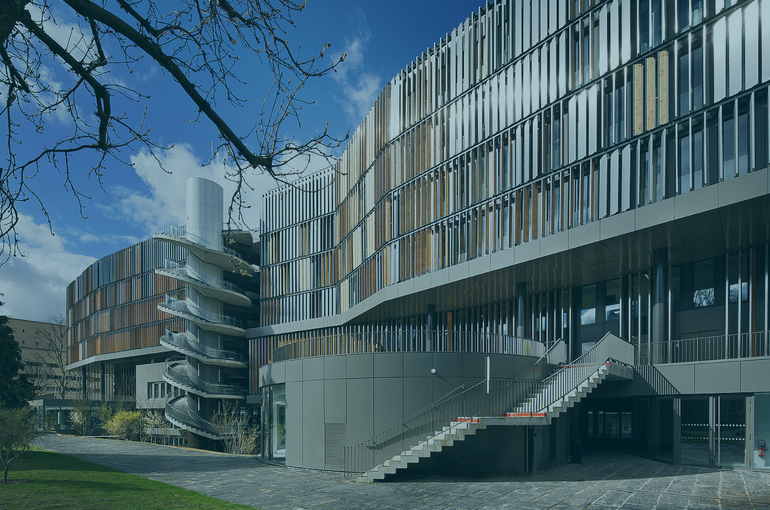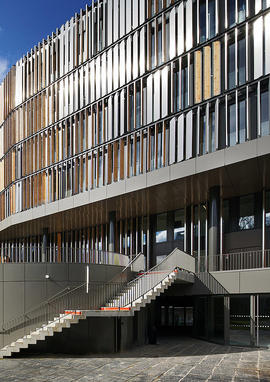
Following its first three years, the research Chair funded by the SCOR Corporate Foundation for Science and hosted by PSE has been renewed until 2023. This partnership aims to strengthen high level research and the dissemination of knowledge about macroeconomic risk analysis.
Initial interests confirmed by the current context
The economic environment is more uncertain than ever. Since its creation in 2017, this research Chair has tackled key questions that have become even more urgent with the current global health crisis: how should we deal with unconventional monetary policies when interest rates are at zero or negative? How should we manage the high levels of public and private debt? What light can we shed on uncertainty about growth, productivity and innovation (especially with the possibility of secular stagnation)? What extra risks have emerged during the COVID-19 epidemic? Through its activities, the Chair contributes to growing debates on these themes to generate a better understanding of contemporary macroeconomics.
An early assessment
Thanks to the support of the SCOR Foundation, the Chair has diverse means at its disposal to pursue its mission:
- Numerous academic events – seminars, workshops, annual conferences and round-tables – which bring together influential risk specialists, researchers and PhD students from other institutions, as well as members of SCOR. All media presentations and video recordings are available online.
- A regular newsletter in magazine format, and working papers specific to the Chair, contribute to its growing visibility in scholarly circles and among professionals interested in risk.
- The SCOR-PSE Junior Research Prize: awarded to junior researchers for work on the theme of macroeconomic risk. In 2019, Maryam Farboodi (MIT) won the prize for her exceptional work on intermediation and voluntary exposure to counterparty risk; in 2020, Ludwig Straub (Harvard) and Robert Ulbricht (Boston College) were rewarded for their excellent recent work on endogenous uncertainty and liquidity crises.
2020-2023: Goals and issues
In this new phase, the Chair aims to strengthen its three main activities: stimulating scholarly exchange through the organisation of world-class events, promoting its analysis and findings, and encouraging young risk researchers.
While these research themes will continue to be pursued – especially the analysis of rare events, financial risks and natural catastrophes – new research fields are also on the agenda, with a systematic view to the long term:
- The risks of growth: productivity and competitiveness, interest rates over the long term and their impact on trade imbalances, automation, secular stagnation.
- Risks linked to the sustainability of monetary and fiscal policies, in particular new schemes based on the buyback of public debt and even private assets.
- Politico-economic risks: the rise of populism, tensions within the European Union.
- The integration of epidemiological processes into short-term and long-term macroeconomic models.
André Levy-Lang, Chairman of the SCOR Corporate Foundation for Science, comments: “This three-year partnership has created a unique and ambitious relationship between the SCOR Foundation and the Paris School of Economics. The renewal of this Chair is proof of our shared will to strengthen research into macroeconomic risk in order to respond to the social issues of today and tomorrow.”
Gilles Saint-Paul, academic director and current Chair holder, adds: “The SCOR-PSE Chair in Macroeconomic Risk is a spearhead in macroeconomic research. Its initial goal remains: to develop a fruitful dialogue between global leaders in reinsurance and one of the best European research centres.”
-----------------------------------
About the SCOR-PSE Chair
Under the scientific leadership of Gilles Saint-Paul (PSE, ENS) and the executive leadership of Axelle Ferrière (PSE, CNRS), the SCOR-PSE Chair, created in June 2018, aims to promote the development and dissemination of research into macroeconomic risk, in particular rare events and uncertainties that remain difficult to model. It publishes articles, organises an annual conference and gives out the Young Researcher Award each year.
